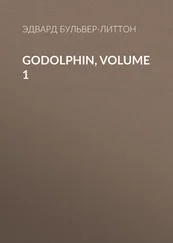Эдвард Бульвер-Литтон - Lucretia — Volume 01
Здесь есть возможность читать онлайн «Эдвард Бульвер-Литтон - Lucretia — Volume 01» — ознакомительный отрывок электронной книги совершенно бесплатно, а после прочтения отрывка купить полную версию. В некоторых случаях можно слушать аудио, скачать через торрент в формате fb2 и присутствует краткое содержание. Жанр: literature_19, foreign_detective, на английском языке. Описание произведения, (предисловие) а так же отзывы посетителей доступны на портале библиотеки ЛибКат.
- Название:Lucretia — Volume 01
- Автор:
- Жанр:
- Год:неизвестен
- ISBN:нет данных
- Рейтинг книги:5 / 5. Голосов: 1
-
Избранное:Добавить в избранное
- Отзывы:
-
Ваша оценка:
- 100
- 1
- 2
- 3
- 4
- 5
Lucretia — Volume 01: краткое содержание, описание и аннотация
Предлагаем к чтению аннотацию, описание, краткое содержание или предисловие (зависит от того, что написал сам автор книги «Lucretia — Volume 01»). Если вы не нашли необходимую информацию о книге — напишите в комментариях, мы постараемся отыскать её.
Lucretia — Volume 01 — читать онлайн ознакомительный отрывок
Ниже представлен текст книги, разбитый по страницам. Система сохранения места последней прочитанной страницы, позволяет с удобством читать онлайн бесплатно книгу «Lucretia — Volume 01», без необходимости каждый раз заново искать на чём Вы остановились. Поставьте закладку, и сможете в любой момент перейти на страницу, на которой закончили чтение.
Интервал:
Закладка:
Edward Bulwer-Lytton
Lucretia — Volume 01
PREFACE TO THE EDITION OF 1853
"Lucretia; or, The Children of Night," was begun simultaneously with "The Caxtons: a Family Picture." The two fictions were intended as pendants; both serving, amongst other collateral aims and objects, to show the influence of home education, of early circumstance and example, upon after character and conduct. "Lucretia" was completed and published before "The Caxtons." The moral design of the first was misunderstood and assailed; that of the last was generally acknowledged and approved: the moral design in both was nevertheless precisely the same. But in one it was sought through the darker side of human nature; in the other through the more sunny and cheerful: one shows the evil, the other the salutary influences, of early circumstance and training. Necessarily, therefore, the first resorts to the tragic elements of awe and distress, —the second to the comic elements of humour and agreeable emotion. These differences serve to explain the different reception that awaited the two, and may teach us how little the real conception of an author is known, and how little it is cared for; we judge, not by the purpose he conceives, but according as the impressions he effects are pleasurable or painful. But while I cannot acquiesce in much of the hostile criticism this fiction produced at its first appearance, I readily allow that as a mere question of art the story might have been improved in itself, and rendered more acceptable to the reader, by diminishing the gloom of the catastrophe. In this edition I have endeavoured to do so; and the victim whose fate in the former cast of the work most revolted the reader, as a violation of the trite but amiable law of Poetical Justice, is saved from the hands of the Children of Night. Perhaps, whatever the faults of this work, it equals most of its companions in the sustainment of interest, and in that coincidence between the gradual development of motive or passion, and the sequences of external events constituting plot, which mainly distinguish the physical awe of tragedy from the coarse horrors of melodrama. I trust at least that I shall now find few readers who will not readily acknowledge that the delineation of crime has only been employed for the grave and impressive purpose which brings it within the due province of the poet,—as an element of terror and a warning to the heart.
LONDON, December 7.
PREFACE TO THE FIRST EDITION
It is somewhere about four years since I appeared before the public as the writer of a fiction, which I then intimated would probably be my last; but bad habits are stronger than good intentions. When Fabricio, in his hospital, resolved upon abjuring the vocation of the Poet, he was, in truth, recommencing his desperate career by a Farewell to the Muses,— I need not apply the allusion.
I must own, however, that there had long been a desire in my mind to trace, in some work or other, the strange and secret ways through which that Arch-ruler of Civilization, familiarly called "Money," insinuates itself into our thoughts and motives, our hearts and actions; affecting those who undervalue as those who overestimate its importance; ruining virtues in the spendthrift no less than engendering vices in the miser. But when I half implied my farewell to the character of a novelist, I had imagined that this conception might be best worked out upon the stage. After some unpublished and imperfect attempts towards so realizing my design, I found either that the subject was too wide for the limits of the Drama, or that I wanted that faculty of concentration which alone enables the dramatist to compress multiform varieties into a very limited compass. With this design, I desired to unite some exhibition of what seems to me a principal vice in the hot and emulous chase for happiness or fame, fortune or knowledge, which is almost synonymous with the cant phrase of "the March of Intellect," in that crisis of society to which we have arrived. The vice I allude to is Impatience. That eager desire to press forward, not so much to conquer obstacles as to elude them; that gambling with the solemn destinies of life, seeking ever to set success upon the chance of a die; that hastening from the wish conceived to the end accomplished; that thirst after quick returns to ingenious toil, and breathless spurrings along short cuts to the goal, which we see everywhere around us, from the Mechanics' Institute to the Stock Market,- -beginning in education with the primers of infancy, deluging us with "Philosophies for the Million" and "Sciences made Easy;" characterizing the books of our writers, the speeches of our statesmen, no less than the dealings of our speculators,—seem, I confess, to me to constitute a very diseased and very general symptom of the times. I hold that the greatest friend to man is labour; that knowledge without toil, if possible, were worthless; that toil in pursuit of knowledge is the best knowledge we can attain; that the continuous effort for fame is nobler than fame itself; that it is not wealth suddenly acquired which is deserving of homage, but the virtues which a man exercises in the slow pursuit of wealth,—the abilities so called forth, the self-denials so imposed; in a word, that Labour and Patience are the true schoolmasters on earth. While occupied with these ideas and this belief, whether right or wrong, and slowly convinced that it was only in that species of composition with which I was most familiar that I could work out some portion of the plan that I began to contemplate, I became acquainted with the histories of two criminals existing in our own age,—so remarkable, whether from the extent and darkness of the guilt committed, whether from the glittering accomplishments and lively temper of the one, the profound knowledge and intellectual capacities of the other, that the examination and analysis of characters so perverted became a study full of intense, if gloomy, interest.
In these persons there appear to have been as few redeemable points as can be found in Human Nature, so far as such points may be traced in the kindly instincts and generous passions which do sometimes accompany the perpetration of great crimes, and, without excusing the individual, vindicate the species. Yet, on the other hand, their sanguinary wickedness was not the dull ferocity of brutes; it was accompanied with instruction and culture,—nay, it seemed to me, on studying their lives and pondering over their own letters, that through their cultivation itself we could arrive at the secret of the ruthless and atrocious pre- eminence in evil these Children of Night had attained; that here the monster vanished into the mortal, and the phenomena that seemed aberrations from Nature were explained.
I could not resist the temptation of reducing to a tale the materials which had so engrossed my interest and tasked my inquiries. And in this attempt, various incidental opportunities have occurred, if not of completely carrying out, still of incidentally illustrating, my earlier design,—of showing the influence of Mammon upon our most secret selves, of reproving the impatience which is engendered by a civilization that, with much of the good, brings all the evils of competition, and of tracing throughout, all the influences of early household life upon our subsequent conduct and career. In such incidental bearings the moral may doubtless be more obvious than in the delineation of the darker and rarer crime which forms the staple of my narrative. For in extraordinary guilt we are slow to recognize ordinary warnings,—we say to the peaceful conscience, "This concerns thee not!" whereas at each instance of familiar fault and commonplace error we own a direct and sensible admonition. Yet in the portraiture of gigantic crime, poets have rightly found their sphere and fulfilled their destiny of teachers.
Читать дальшеИнтервал:
Закладка:
Похожие книги на «Lucretia — Volume 01»
Представляем Вашему вниманию похожие книги на «Lucretia — Volume 01» списком для выбора. Мы отобрали схожую по названию и смыслу литературу в надежде предоставить читателям больше вариантов отыскать новые, интересные, ещё непрочитанные произведения.
Обсуждение, отзывы о книге «Lucretia — Volume 01» и просто собственные мнения читателей. Оставьте ваши комментарии, напишите, что Вы думаете о произведении, его смысле или главных героях. Укажите что конкретно понравилось, а что нет, и почему Вы так считаете.












